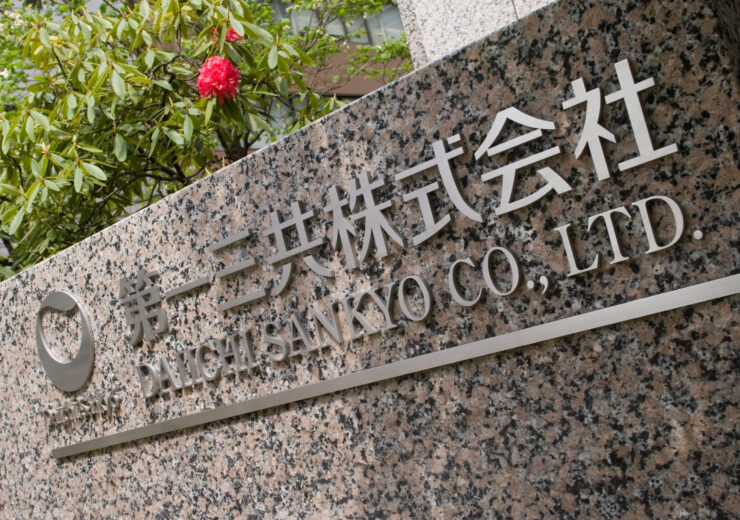The two-part, multicenter, open-label, first-in-human phase 1/2 trial will assess the safety and efficacy of DS-3939 in patients with locally advanced, metastatic or unresectable solid tumors not amenable to standard of care treatment for each tumor type

Daiichi Sankyo Stone Monument. (Credit: DAIICHI SANKYO COMPANY, LIMITED)
Daiichi Sankyo (TSE: 4568) announced today that the first patient has been dosed in a first-in-human phase 1/2 trial evaluating DS-3939 in patients with several types of advanced solid tumors including non-small cell lung, breast, urothelial, ovarian, biliary tract, and pancreatic cancer.
DS-3939 is a specifically engineered potential first-in-class tumor-associated mucin-1 (TA-MUC1) directed antibody drug conjugate (ADC) designed using Daiichi Sankyo’s proprietary DXd ADC technology.
TA-MUC1 is a tumor-specific transmembrane glycoprotein and is overexpressed in most human epithelial cancers, making it a promising target for cancer therapy.1,2 Currently, there are no TA-MUC1 directed therapies approved for any type of cancer.
“With DS-3939, we are pairing our unique DXd antibody drug conjugate technology with a TA-MUC1 antibody in order to evaluate this novel treatment strategy for patients with several types of advanced cancer,” said Mark Rutstein, MD, Global Head, Oncology Clinical Development, Daiichi Sankyo. “The initiation of this trial is a significant milestone as DS-3939 is an important new addition to our growing DXd ADC portfolio, which now consists of six ADCs in clinical development, and represents our ongoing commitment to create new standards of care for patients with cancer.”
About the Phase 1/2 Trial
The two-part, multicenter, open-label, first-in-human phase 1/2 trial will assess the safety and efficacy of DS-3939 in patients with locally advanced, metastatic or unresectable solid tumors not amenable to standard of care treatment for each tumor type.
The first part of the trial (dose escalation) will assess the safety and tolerability of increasing doses of DS-3939 to determine the maximum tolerated dose and/or the recommended doses for expansion (RDEs) in patients with locally advanced, metastatic, or unresectable solid tumors.
The second part of the trial (dose expansion) will consist of multiple expansion cohorts to continue to assess the safety and efficacy of DS-3939. The trial will evaluate safety endpoints including dose-limiting toxicities and adverse events, and efficacy endpoints including overall response rate, disease control rate, duration of response, time to response, progression-free survival and overall survival. Pharmacokinetic and biomarker endpoints also will be assessed.
The trial is expected to enroll patients across multiple sites globally, including Asia and North America. For more information, please visit ClinicalTrials.gov.
About TA-MUC1
TA-MUC1 is a tumor-specific transmembrane glycoprotein with aberrant glycosylation due to changes of the expression patterns of some sialyltransferases.1 Based on the overexpression of TA-MUC1 in most human epithelial cancers, it is an attractive target for cancer therapy.2 Currently, there are no TA-MUC1 directed therapies approved for any type of cancer.
About DS-3939
DS-3939 is an investigational potential first-in-class TA-MUC1 directed ADC. Designed using Daiichi Sankyo’s proprietary DXd ADC technology, DS-3939 is comprised of a humanized anti-TA-MUC1 antibody licensed from Glycotope GmbH, attached to a number of topoisomerase I inhibitor payloads (an exatecan derivative, DXd) via tetrapeptide-based cleavable linkers.
Source: Company Press Release
